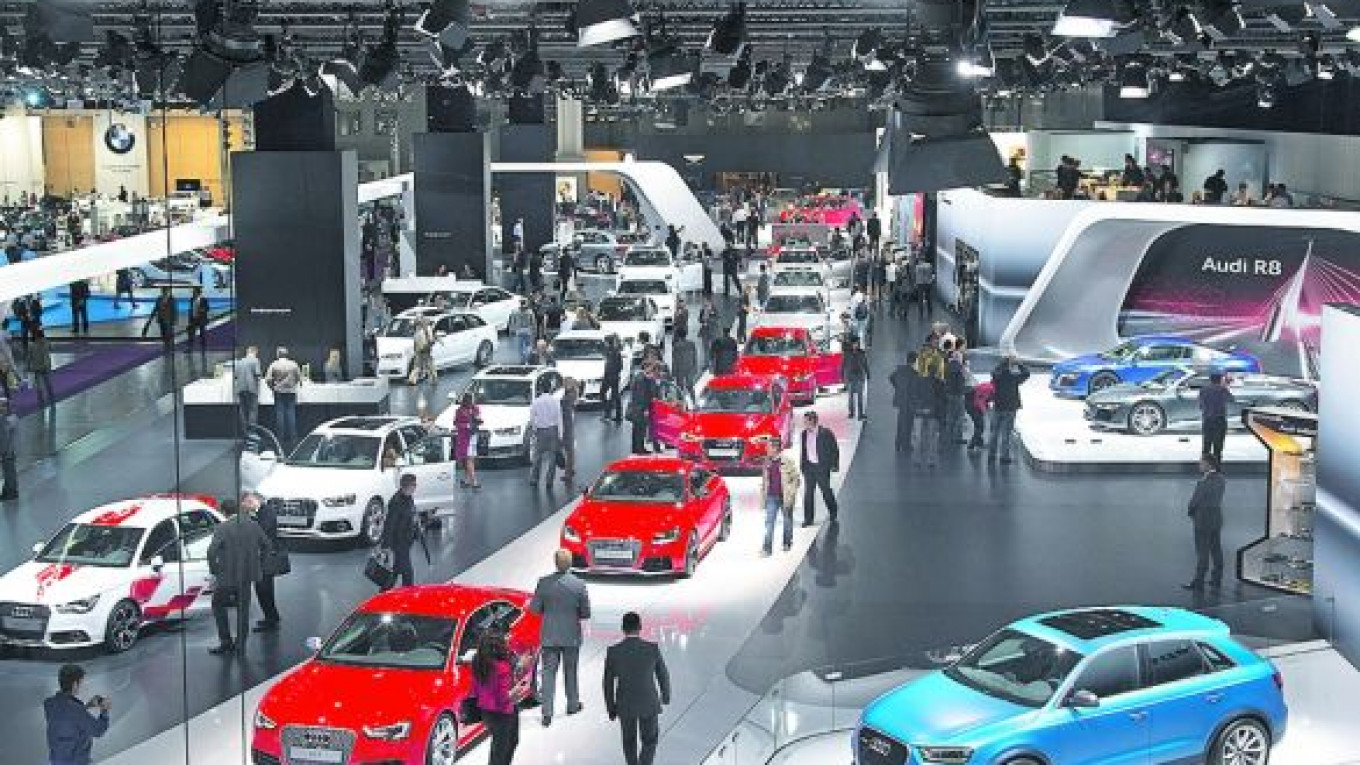Europe's trade chief threatened to take Russia to the World Trade Organization over a string of restrictive practices on Friday, saying Moscow needed to play by the rules now that it was a member of the global body.
Trade Commissioner Karel De Gucht criticized Russia's ban on European live animal imports, plans to levy fees on imported vehicles, two anti-dumping cases and another trade defense case launched by Moscow against Europe in recent months.
In the same week that the European Commission opened an investigation into Russia's Gazprom and China's solar panel exports, De Gucht said Russia was sending "the wrong signal" instead of moving towards more liberalization.
"Be it live animals, or the recycling fee for imported cars, we will be very vigilant in making sure they live up to their engagements," De Gucht told Reuters on the sidelines of an EU-Russia seminar in Helsinki.
"Our intention is to continue discussions. But if there is no change in their position, we have said that we will use whatever means necessary to come to a result we believe would be in line with the WTO. It is a serious thing."
Russia joined the WTO last month after an 18-year wait. President Vladimir Putin said on Wednesday the country would use its membership to try to develop freer trade across the world. He also said he was hoping it would further boost Russia's energy-driven $1.9 trillion economy.
De Gucht said Russia was violating WTO rules by keeping its markets closed to competitors.
"What these and other measures … have in common is that they affect products where significant market opening is due to take place under Russia's WTO commitments," De Gucht told the seminar.
"This is the wrong signal to send at a time when liberalization is supposed to be moving forward."
Russia and the EU are deeply intertwined, with Europe relying heavily on Russian energy exports and Russians hungry for EU products and access to its 500 million consumers.
But the two sides argue over issues ranging from energy supplies, trade and market access to human rights. While relations are at times frosty, both refer to each other as "strategic partners" and meet for twice-yearly summits.
Negotiations between Russia and the EU on closer economic and political ties have also stalled, and Brussels is concerned by Putin's plan to develop a "Eurasian union" of ex-Soviet states, including Kazakhstan and Belarus.
Related articles:
A Message from The Moscow Times:
Dear readers,
We are facing unprecedented challenges. Russia's Prosecutor General's Office has designated The Moscow Times as an "undesirable" organization, criminalizing our work and putting our staff at risk of prosecution. This follows our earlier unjust labeling as a "foreign agent."
These actions are direct attempts to silence independent journalism in Russia. The authorities claim our work "discredits the decisions of the Russian leadership." We see things differently: we strive to provide accurate, unbiased reporting on Russia.
We, the journalists of The Moscow Times, refuse to be silenced. But to continue our work, we need your help.
Your support, no matter how small, makes a world of difference. If you can, please support us monthly starting from just $2. It's quick to set up, and every contribution makes a significant impact.
By supporting The Moscow Times, you're defending open, independent journalism in the face of repression. Thank you for standing with us.
Remind me later.


